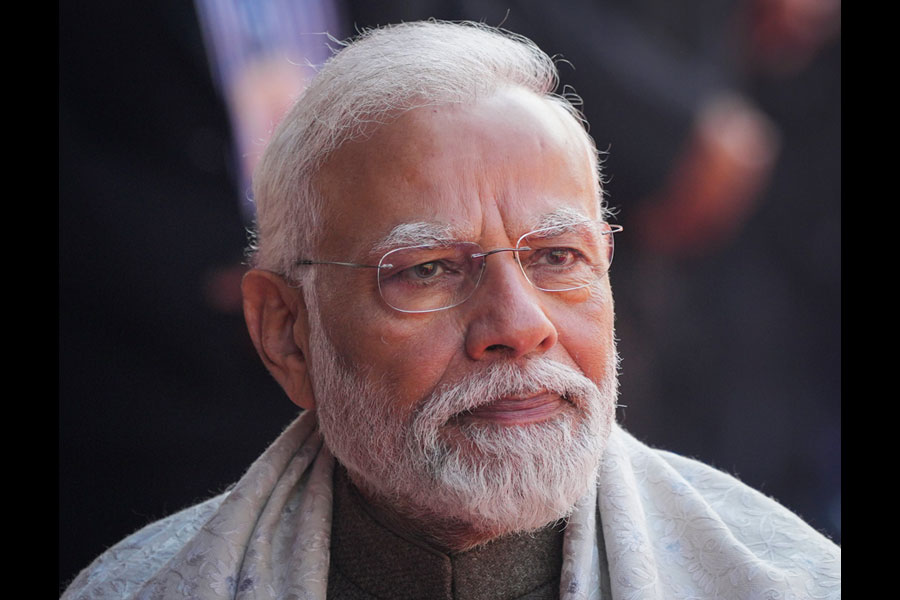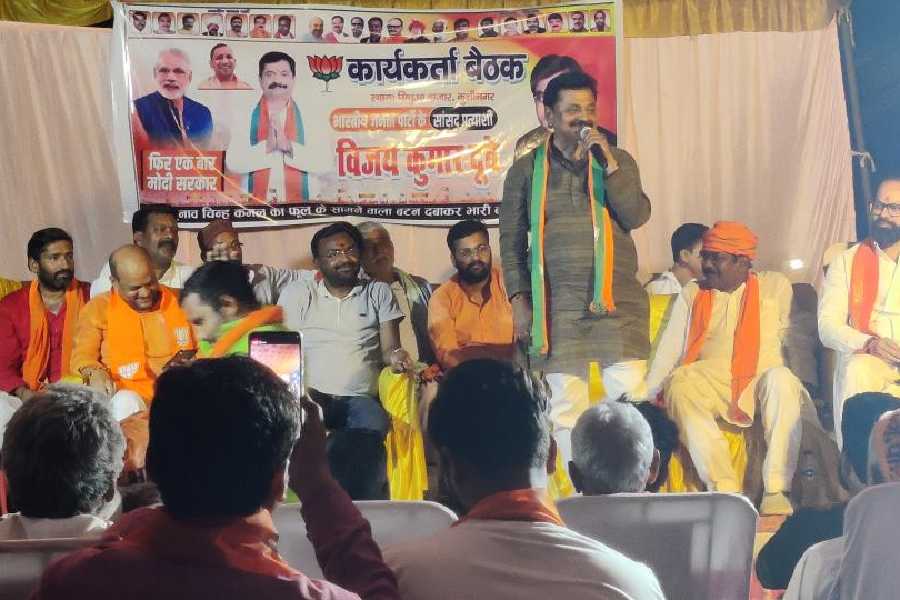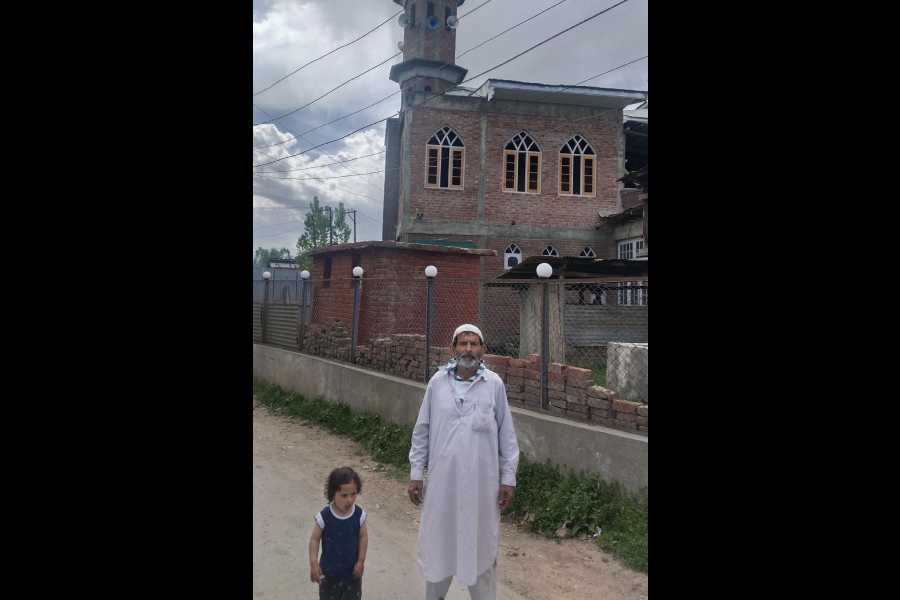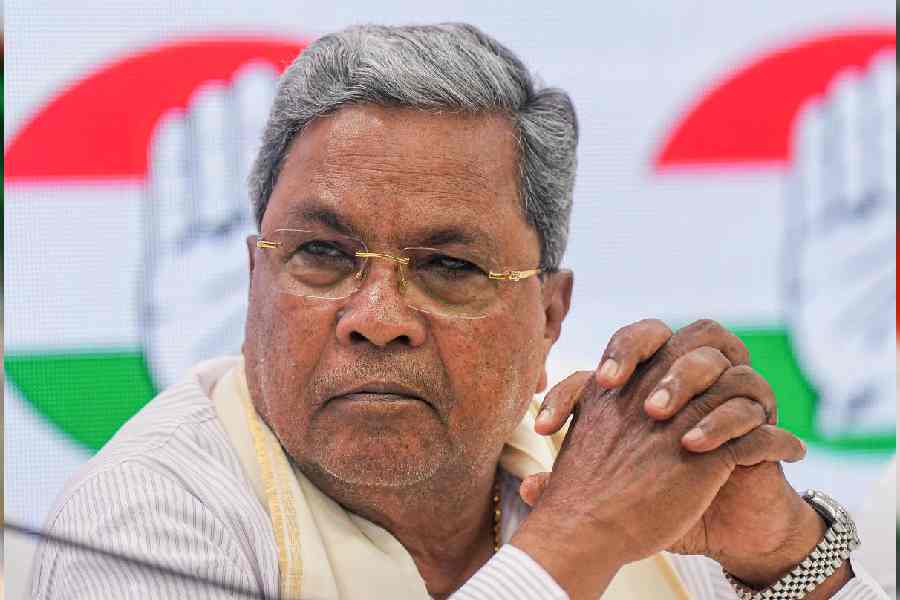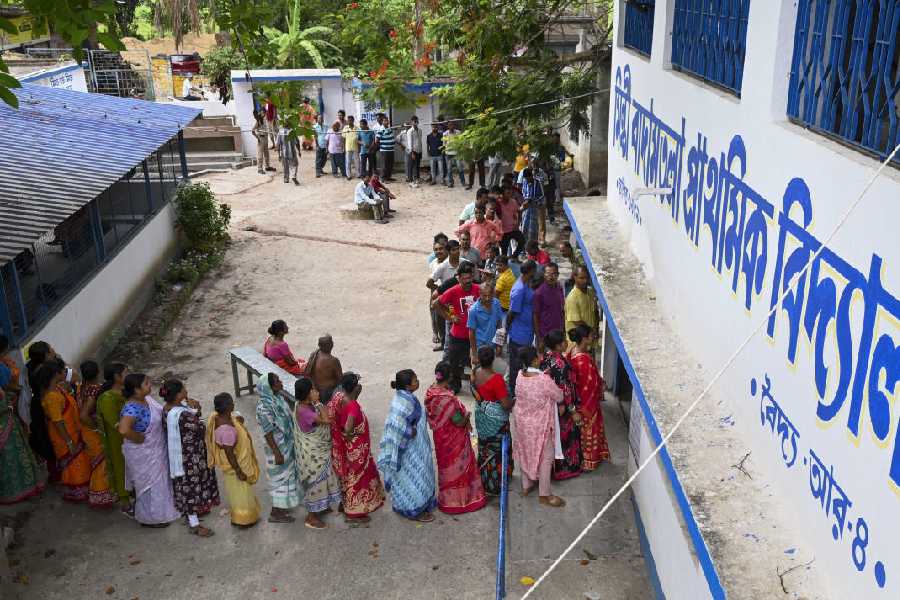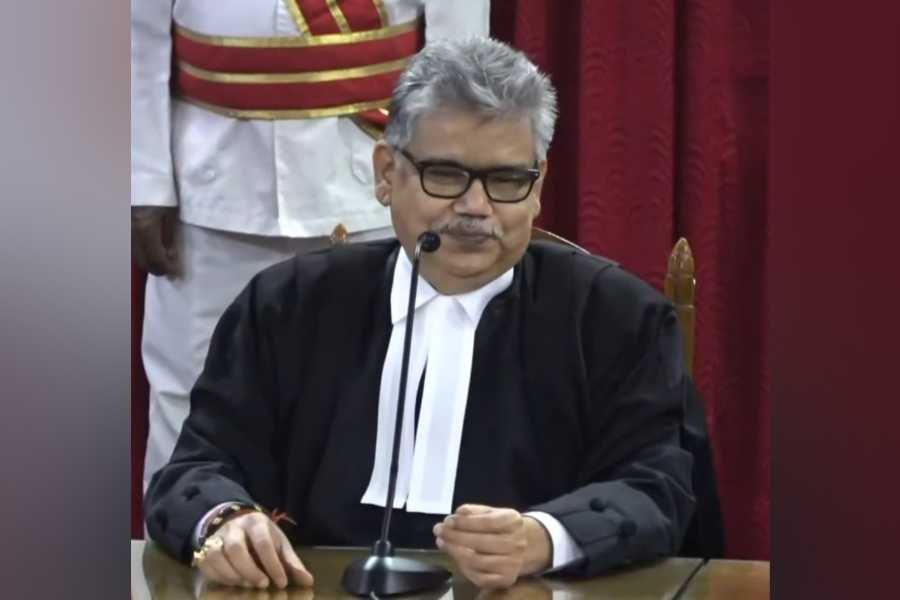Earlier this month, Prime Minister Narendra Modi declared that India would become the world’s third-largest economy in his third term in office. There was no reference to the small matter of the election he needs to win in 2024 to stay in power.
His supporters will call it confidence, his critics arrogance. What is clear is that the prime minister’s parameters for the country’s economic health didn’t resonate with the 303 Indians who boarded a plane that authorities believe was taking them to Nicaragua from where they would presumably try to enter the United States of America illegally. So desperate were these Indians that when France, acting on a tip-off, forced the plane down, 27 among them pleaded for asylum in the European nation.
France sent the remaining 276 Indians back to Mumbai, where they landed on Tuesday morning — as living examples of the mismatch between the government’s rhetoric on the economy and the reality that millions of people around the country deal with every day. Such stories dent the narrative of an increasingly prosperous India that the Modi government is determined to try and convince the world about.
For those who look at the GDP, India’s economy is definitely growing. The stock market is certainly up. But there are other indicators that raise questions about the state of the economy and India’s place in the world.
Earlier this year, the London-based wealth manager, Henley & Partners, reported that an estimated 6,500 Indian millionaires are expected to leave the country in 2023, a number that is second only to China. This follows a growing trend of high-net-worth Indians leaving the country. Those who stay are increasingly investing abroad: the share of Indian investments in other countries has been growing so fast that the government has imposed limits on how much wealth Indians can park abroad. Meanwhile, more than 85,000 Indians — rich and poor — gave up their passports in the first half of 2023. That number, too, is increasing: more than 220,000 Indians quit their citizenship last year compared to 129,000 in 2014.
Just like those men, women and children sent back by France this week, desperation defines the desire of tens of thousands of Indians keen to move to the West — whatever the risks.
Stories of Indian-American success are commonplace, but here’s another fact: between October 2022 and September 2023, nearly 97,000 Indians tried to enter the US illegally and were stopped. That’s a five-fold increase from the figure in 2019-2020. Overall, Indians are the third-largest group of illegal migrants in the US. Indians are also the second-largest group of undocumented migrants trying to enter the United Kingdom on small boats that can capsize easily. If some brave the risk of death at sea, others fail to survive the often-frigid conditions along the Canada-US border. In January 2022, four Indians froze to death while trying to illegally cross over from India to the US. Another Indian family drowned while trying to cross the same border in March 2023.
When both the rich and the poor, the elite and the desperate, are showing signs that they don’t trust that their economic future lies in India, something’s clearly wrong. The flight of the rich reduces the tax base of wealthy Indians, hurting revenue for social programmes. If they’re investing less in India, that is also a sign of no-confidence. And if thousands of Indians are willing to risk deportation, death and everything in between to make it to another nation, it can be reasonably assumed that many more are waiting to follow in their path.
As the governments of the US, UK, France and other Western nations recognise this side of the Indian economic story, they will ask harder questions of New Delhi: are their investments safe in India? Is the Indian economy as robust as the government claims?
The best way to avoid that for India would be to address the economic challenges that are forcing so many of the poor, and encouraging so many of the rich, to leave the country. The government could start with the planeload of Indians waiting in Mumbai.
Charu Sudan Kasturi is a senior journalist who writes on foreign policy and international relations

